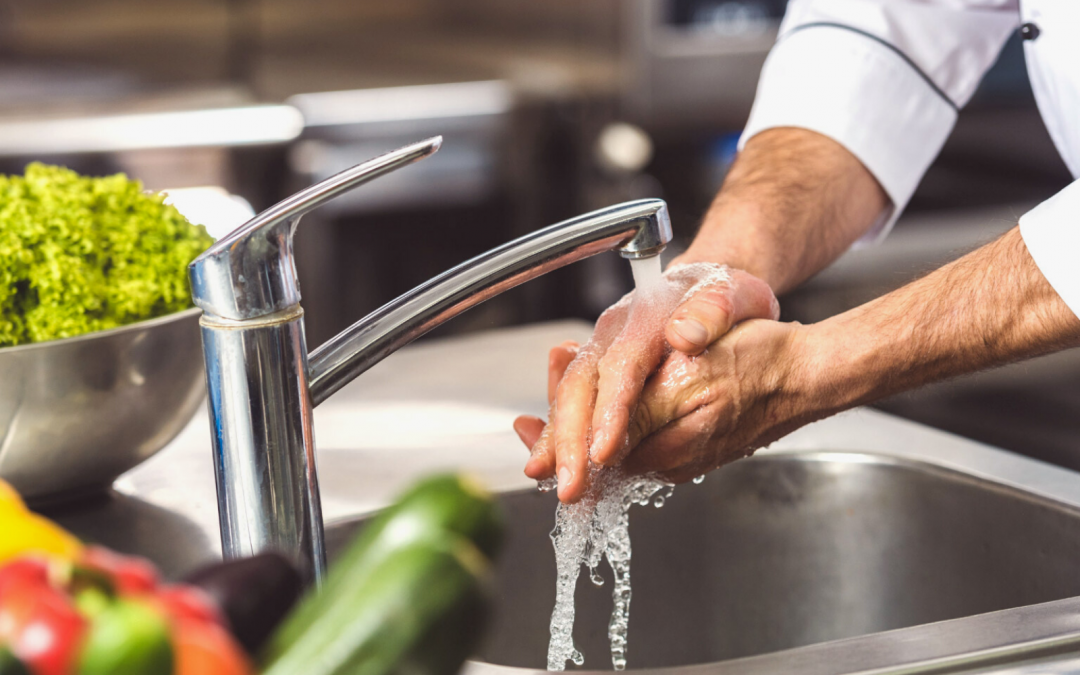- Call: +8802 222 274 367
- Email: sales@bd-human.com
Essential Personal Hygiene for Restaurant Workers

In the restaurant business, personal hygiene is not only about being clean but also about food safety and customer satisfaction. Good hygiene keeps food safe and shows customers that your restaurant cares about their health. Poor hygiene, on the other hand, can lead to serious foodborne illnesses, unhappy customers, and even fines from health inspectors.
In this blog, we’ll talk about why personal hygiene is important for restaurant workers and share simple tips to make it a habit every day.
Why is Personal Hygiene Important in Restaurants?
1. Reduces Risk of Foodborne Illness
When restaurant workers maintain good hygiene, it helps prevent foodborne diseases. Simple actions like washing hands and wearing clean clothes reduce the chance of spreading harmful germs that can make customers sick.
2. Builds Customer Trust
Cleanliness in a restaurant is a big deal for customers. When they see employees following proper hygiene practices, they feel safer and more comfortable eating at your restaurant. Good hygiene helps build customer trust and loyalty, leading to repeat business.
3. Meets Health Standards
Restaurants are held to high health and safety standards, and good hygiene is a big part of passing inspections. Poor hygiene can result in costly fines or even cause a restaurant to close temporarily. Meeting these standards is essential for success.
Key Hygiene Practices for Restaurant Workers
1. Wash Your Hands Often
Handwashing is one of the simplest and most effective hygiene practices for restaurant staff. Workers should wash their hands:
- Before starting work and after breaks
- After handling raw food, especially meat
- After touching their face, hair, or any personal items
- After using the restroom
Best Way to Wash Hands:
- Use warm water and soap for at least 20 seconds.
- Wash between fingers, under nails, and up to the wrists.
- Dry hands with a disposable towel or air dryer.
2. Keep Nails and Hair Clean
- Nails: Short, clean nails prevent germs from collecting under them. Avoid nail polish and artificial nails in food preparation.
- Hair: Keep hair tied back and wear a hairnet or cap to stop loose hairs from getting into food.
3. Wear Clean Uniforms and Protective Clothing
Clean uniforms, aprons, and gloves help reduce contamination. Change gloves often, especially when handling different types of food.
4. Limit Direct Contact with Food
- Use Gloves Properly: Gloves should be worn when handling ready-to-eat items but must be changed regularly.
- Use Utensils: Tongs, scoops, and other utensils limit the need for direct hand contact with food.
5. Stay Home if Sick
Employees who feel unwell should not work with food. Illness increases the risk of contaminating food, spreading germs to coworkers, and impacting customer health.
6. Keep Personal Items Away from Food Prep Areas
Phones, bags, and other personal belongings should be stored away from food preparation areas. Once workers enter food service areas, avoid touching these items.
Simple Ways to Promote Hygiene in Restaurants
- Provide Regular Hygiene Training: Conduct frequent hygiene training to remind workers of its importance. Posters in kitchens and break rooms also serve as good reminders.
- Lead by Example: Managers and supervisors should model good hygiene practices, setting the standard for all employees.
- Encourage a Clean Environment: Make hygiene a shared goal for everyone in the workplace, ensuring a cleaner and safer restaurant environment.
Related Articles
Finding Skilled Labor for Recruitment in Saudi Arabia
Latest Posts

Finding Skilled Labor for Recruitment in Saudi Arabia
November 4, 2024



